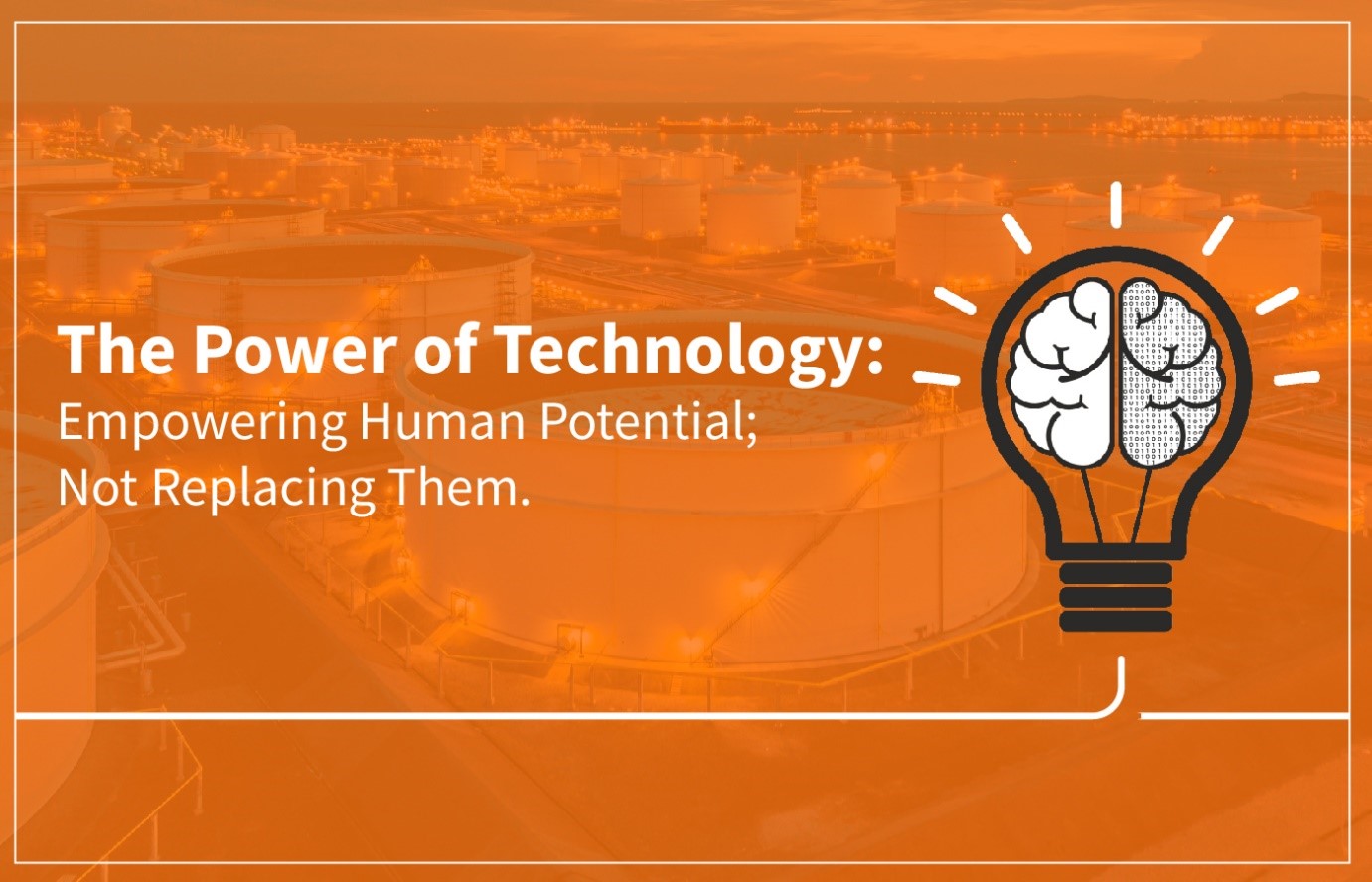The Power of Technology: Empowering Human Potential; Not Replacing Them.

The Covid-19 pandemic accelerated the adoption of cutting-edge technologies, to meet requirements from bare necessities to essential products and services. We realised that automation is fundamentally transforming, rather than merely touching our daily lives.
But a question arises, what happens to people who provided these services? Will they benefit from technological progress?
It will be interesting to note that while we enjoy the benefits of technology, we tend to observe these advances with a lens of job creation or job destruction. If technology displaces workers, jobs are lost. If technology creates (or reinstates) work, jobs are created. So, let us look at the scenario pre covid.
The World Economic Forum estimates that by 2025, technology will create at least 12 million more jobs than it destroys. We can safely assume that technology does not eliminate the human roles but changes the type of work required and the skills needed to perform the roles.
Job creation isn’t everything, equally vital question is what do these jobs pay. Do salaries rise or fall owing to technological progress?
Technology Can Boost Earning
Conventional economic theory suggests the ability to earn is dictated by supply and demand. When jobs require specialized skills, pay rises because fewer people have the required skills. Increased demand also increases jobs and pay as relevant skilled people are hard to find. This explains why people in highly skilled jobs earn more than less skilled people.
Adapting to change
“Nothing is so painful to the human mind as a great and sudden change.” ― Mary Shelley
Every time a new technology is introduced, there is huge speculation regarding its impact on business and employment opportunities.
With the rapid increase of personal computers and the birth of the internet, the 1990s marked a period of significant advancements in computer technology. While these technological breakthroughs brought undeniable benefits, they also triggered widespread speculation. People were fascinated by the possibilities that computers posed yet were worried that their skills and expertise would become redundant, as machines would be more efficient, reliable, and cost-effective in performing tasks previously done by humans.
The emergence of powerful software for word processing, spreadsheets, and database management seemingly threatened the roles traditionally performed by secretaries and data entry personnel.
Despite these anxieties, the reality turned out to be very different. While certain job roles did evolve, new opportunities emerged in parallel.
The shift toward computerization demanded a workforce with technological skills, creating a demand for computer programmers, IT specialists, Data entry operators and other tech-related professions.
Advent of Internet
Internet's entry has been transformative; it has revolutionized numerous aspects of our existence. The Internet has influenced communication, the entertainment industry, and service delivery. This shrunk the world to a global village with its ability to connect people and facilitate instant communication. It reshaped business models, expanded markets, and empowered individuals in extraordinary ways.
Let us consider some of the possibilities:
Global Connectivity and Access: The internet broke down geographical barriers, allowing businesses to connect and collaborate across geographies. Service providers can now reach a global audience, exponentially expanding their consumer base.
Online Retail:Even smaller businesses were able to sell globally, geographies were not a limiting factor. It created a whole new set of job roles which were unheard of in the past.
On-Demand Services:The internet enabled services that can be provided instantaneously at the click of a button. Platforms such as Uber – for rides, Swiggy or Zomato and whole lot of other platforms.
Remote Work:The internet paved the way for remote work, transforming the traditional office-based employment model.
Information and Knowledge Sharing:The internet has democratized access to information and knowledge, empowering individuals to learn, acquire new skills, and share their expertise.
Each of these created varied job opportunities which were unheard of prior to internet.
Looking back
As we Look back, it is evident that the fear was overstated. While technology did disrupt certain job sectors and transformed the nature of work, it created new opportunities and expanded industries. The key to successful adaptation is upskilling and staying abreast of emerging trends.
Upskill to remain Employable
Upskilling has become an essential strategy for professional development and remaining relevant in a constantly changing job market in today's fast-paced world. Software products can significantly expand skill sets and provide new opportunities. One of the most effective methods to acquire new skills is through hands-on experience, which also builds confidence in the person. Using PMT Tank Software creates an immersive learning environment, allowing engineers to improve their abilities.
Conclusion
Technology is an amazing force that, when utilized responsibly and ethically, improves human potential. By adopting technology as a collaborative or enabling tool, we can utilize its capabilities to accelerate our work, create new opportunities, and improve our skill sets.
Technology aids in IMPROVING the process, increasing productivity, and bettering the lives of humans.
Through continuous upskilling, adaptation, and the preservation of our unique human qualities, we can guarantee that technology will continue to serve as a catalyst for progress, innovation, and the general improvement of society. Let us embrace the power of technology and embark on a voyage of boundless opportunities.
